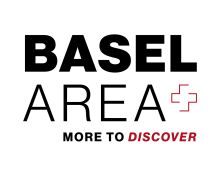
Achieving the FDA’s Fast track designation for its candidate, ALXN2220 for depletion of Cardiac misfolded transthyretin, has several benefits for Neurimmune, including expediting the regulatory process. At Cutiss, the medtech team announced the first patient treated its first US patient with its bio-engineered skin graft, while BioVersys completed two phase 2 clinical trials.
The FDA has granted Fast Track designation to Neurimmune’s partner Alexion, AstraZeneca for the development of ALXN2220 (formerly NI006) for the treatment of transthyretin amyloidosis with cardiomyopathy (ATTR-CM). ATTR-CM is a systemic, progressive and life-threatening disease caused by the deposition of misfolded transthyretin (TTR), which can lead to heart failure. Despite advances in slowing disease progression, there is no available treatment option designed to deplete TTR from the heart to revert cardiac dysfunction. ALXN2220 is an investigational human monoclonal antibody currently being evaluated in the Phase 3 DepleTTR-CM trial to assess its efficacy as an add-on treatment to the standard of care for patients with ATTR-CM. The primary endpoint is a composite of all-cause mortality and cumulative frequence of cardiovascular clinical events. The Fast Track designation is granted to expedite the review of drugs to treat serious conditions and address an unmet medical need.
Cutiss treats first patient in the US
Cutiss has treated first U.S. patient with its bio-engineered skin graft, denovoSkin™ in reconstructive surgery under FDA compassionate use. This procedure, performed at Massachusetts General Hospital, was authorized under a compassionate use framework for a four-year-old patient suffering from severe burn scars and contractures affecting 90% of his body. Traditional grafting methods were inadequate due to limited healthy skin available for harvesting. The innovative denovoSkin™ graft, created from a small biopsy of the patient's skin, aims to provide a more durable and functional skin replacement without requiring extensive donor sites. Following two successful grafting procedures, the patient is reportedly recovering well, with a third procedure planned.
Jeremy Goverman M.D., Massachusetts General Hospital, stated: “A large burn that covers most of the patient’s body area requires a significant amount of reconstruction and typically there is very limited healthy skin to use for the traditional autografting process. While the current commercially available CEA for initial wound closure can be lifesaving, it consists of just the upper layer of the skin which limits growth over time and causes increased scarring. Furthermore, it is very thin, difficult to work with, and shrinks significantly while it heals. Grafting advancements that feature full thickness, with an epidermis and dermis, that help the skin to look and behave more like normal skin, will mean better outcomes for patients.”
Bioversys closes Phase 2 of VABP program
BioVersys AG, a multi-asset, clinical stage biopharmaceutical company focusing on research and development of novel antibacterial products for serious life-threatening infections caused by multi-drug resistant (“MDR”) bacteria, has completed the phase 2 clinical trial with its lead asset BV100, the company’s novel formulation of rifabutin suitable for intravenous administration. In addition, the company’s second clinical asset, alpibectir, which is developed in partnership with GSK, completed a Phase 2a clinical trial earlier this year. Alpibectir delivered proof of concept in patients and was also shown to be generally safe and well tolerated. Alpibectir will continue to be developed in close partnership with GSK. Alpibectir is a first in class small molecule acting on a transcriptional regulator protein in Mycobacterium tuberculosis (TB). Alpibectir rejuvenates the existing drug ethionamide (Eto), by both potentiating the activity of Eto and restoring the antibacterial activity of Eto towards Eto-resistant TB. The resulting fast bactericidal effect of alpibectir/Eto at low and safe doses offers the potential to replace Isoniazid (INH) in future TB drug regimens for MDR/XDR-TB but also in TB-meningitis patients or INH-mono-resistant patients.
(Press release/RAN)


 The new Swiss Venture Capital Report was published on 26 January. It analyses 304 financing rounds closed in 2020 and includes further article such as an interview with Michael Hengartner, President of the ETH Board, and a list of Swiss "soonicorns".
The new Swiss Venture Capital Report was published on 26 January. It analyses 304 financing rounds closed in 2020 and includes further article such as an interview with Michael Hengartner, President of the ETH Board, and a list of Swiss "soonicorns". 




















































Please login or sign up to comment.
Commenting guidelines